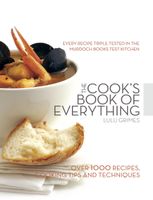Label
All
0
Clear all filters
🔥 Try our grilling cookbooks and save 25% on ckbk membership with code BBQ25 🔥
How to…Make Perfect Biscuits
Appears in
By Lulu Grimes
Published 2009
- Some recipes can be made using a food processor, however biscuit dough should not be overworked or an excess of gluten will develop, resulting in a tough biscuit. Only use a processor to rub the fat into the flour. When the liquid is added, pulse briefly until the mixture just adheres, then turn out onto a work surface to bring together into a smooth, soft ball, without kneading.
- Make sure the oven shelves are set at an equal distance apart if cooking more than one tray at a time. Often the tray underneath will require a longer cooking time. If you have time, cook the biscuits in batches. Alternatively, switch the trays halfway through cooking time.
- Biscuits spread during baking, some more than others. Most average-sized baking trays fit three rows of five biscuits, with the biscuit mixture spaced about 5 cm (2 inches) apart.
- When dropping the dough onto the tray using tablespoons, it is easier and less messy to use two tablespoons, one to measure accurately and the other to push the dough off the spoon onto the tray.
- Always place biscuit dough onto a cold baking tray. If baking in batches, allow the tray to cool before adding the next batch.
- Always bake for the minimum time given. If more cooking is needed, cook for only 2 minutes more and then retest (biscuits can be underdone one minute and then burnt the next).
Part of
Advertisement
Related Recipes
-
-
-
-
Related Reference
-
-
-
-
Advertisement
The licensor does not allow printing of this title



